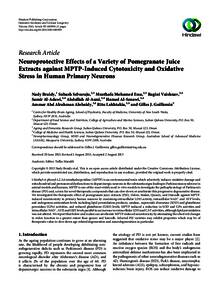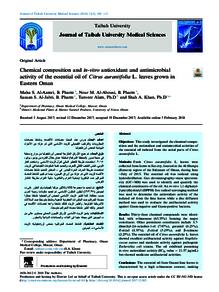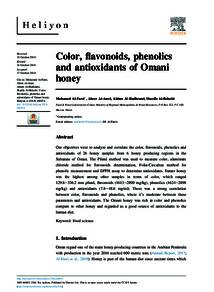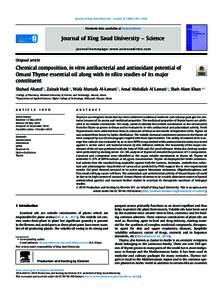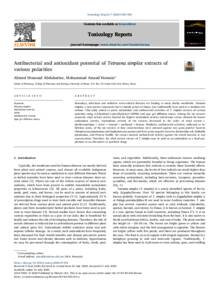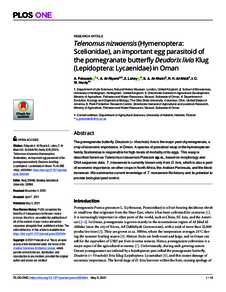وثيقة
Neuroprotective effects of a variety of pomegranate juice extracts against MPTP-induced cytotoxicity and oxidative stress in human primary neurons.
المعرف
DOI: 10.1155/2013/685909
المساهمون
Selvaraju, Subash., مؤلف
Essa, Musthafa Mohamed., مؤلف
Vaishnav, Ragini., مؤلف
Al-Adawi, Samir., مؤلف
Al-Asmi, Abdullah., مؤلف
Al-Senawi, Hamed., مؤلف
Lakhtakia, Ritu., مؤلف
Guillemin, Gilles J., مؤلف
الناشر
Hindawi.
ميلادي
2013
اللغة
الأنجليزية
الموضوع
الملخص الإنجليزي
1-Methyl-4-phenyl-1,2,3,6-tetrahydropyridine (MPTP) is an environmental toxin which selectively induces oxidative damage and mitochondrial and proteasomal dysfunctions to dopaminergic neurons in the substantia nigra leading to Parkinsonian syndrome in animal models and humans. MPTP is one of the most widely used in vitro models to investigate the pathophysiology of Parkinson's disease (PD) and, screen for novel therapeutic compounds that can slow down or ameliorate this progressive degenerative disease. We investigated the therapeutic effect of pomegranate juice extracts (PJE), Helow, Malasi, Qusum, and Hamadh against MPTP-induced neurotoxicity in primary human neurons by examining extracellular LDH activity, intracellular NAD+ and ATP levels, and endogenous antioxidant levels including lipid peroxidation products, catalase, superoxide dismutase (SOD) and glutathione peroxidase (GPx) activities, and reduced glutathione (GSH) levels. MPTP induced a reduction in SOD and GPx activities and intracellular NAD+, ATP, and GSH levels parallel to an increase in extracellular LDH and CAT activities, although lipid peroxidation was not altered. We report that helow and malasi can ameliorate MPTP-induced neurotoxicity by attenuating the observed changes in redox function to a greater extent than qusum and hamedh. Selected PJE varieties may exhibit properties which may be of therapeutic value to slow down age-related degeneration and neurodegeneration in particular.
المجموعة
ISSN
1942-0900
URL المصدر
قالب العنصر
مقالات الدوريات

